Trump Can Be Sued for Capitol Riots
So says a unanimous DC Circuit Court of Appeals panel.
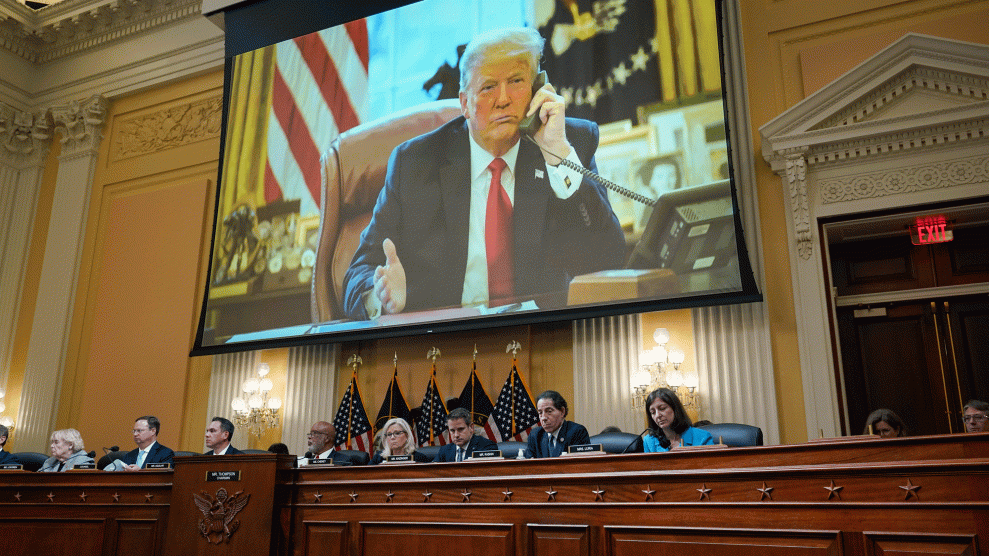
WaPo (“Trump can be held civilly liable in Jan. 6 riot, judges rule“):
Donald Trump can be held civilly liable for the actions of the mob that attacked the U.S. Capitol on Jan. 6, 2021, an appeals court ruled Friday in a long-awaited decision that could clear the way for lawsuits seeking financial damages from the former president.
The unanimous decision by a federal appeals court in Washington is expected to be appealed and also offers insight into how the court could view Trump’s argument that presidential immunity also protects him from being charged criminally for his efforts to stay in power after the 2020 election.
Two U.S. Capitol police officers and about a dozen Democratic lawmakers sued Trump in 2021, saying he potentially instigated violence on Jan. 6 by telling supporters the election was stolen and urging them to march to the Capitol and “fight like hell.” The plaintiffs sued under a roughly 150-year-old law that bars the use of force, threats or intimidation to prevent government officials from carrying out their duties and allows anyone injured by such actions to collect damages. They argued Trump violated the statute — designed to combat Ku Klux Klan violence after the Civil War — by conspiring with members of far-right groups to keep lawmakers from confirming Joe Biden’s election win.
Special Counsel Jack Smith also accused Trump of violating a law written to target the Klan, along with other federal crimes.
Trump and his lawyers have argued that he is protected from both the lawsuit and the criminal charges brought by Special Counsel Jack Smith because of the absolute immunity conferred on a president for anything done as part of his official duties. Under U.S. Supreme Court precedent, presidents can be held liable only for personal actions that fall beyond “the outer perimeter” of their responsibilities.
The question for the appellate court was whether claiming the election was stolen and telling his supporters to go to the Capitol and “fight like hell” crossed that line.
At a hearing nearly a year ago, the judges argued about how to distinguish between protected presidential speechmaking and unprotected personal agitating. One judge, a Trump appointee who served in his administration, said during the December 2022 hearing that Trump’s case was complicated because the former president was plausibly accused of instigating violence in his message to supporters.
The “arguable incitement,” Judge Gregory G. Katsas said, “makes this a hard case.”
[…]
The question of when and how a former president can be charged criminally, rather than sued in civil court, has never arisen before. Trump’s attorneys argued that the civil standard applied in his criminal case. “Trump’s efforts to ensure election integrity, and to advocate for the same” were “at the heart of his official responsibilities as President,” they wrote. Even if Trump maliciously pursued claims he knew were false, his lawyer’s argued, “the President’s motivations are not for the prosecution or this Court to decide.”
Smith’s office replied that if there is any criminal immunity for former presidents, it is be “narrower” than civil immunity, because otherwise it would prevent prosecution even for undisputable crimes such as bribery. They compared former presidents to judges, who enjoy protection from lawsuits but are “subject to criminal prosecutions as are other citizens.”
Trump is “not above the law,” they wrote.
But even under the “outer perimeter” standard, they argued, Trump would not be immune: “The indictment alleges that the defendant acted deceitfully or corruptly to secure a personal benefit to himself as a presidential candidate, not to carry out constitutional obligations entrusted to the presidency.”
The question of whether such immunity applies to Trump’s federal criminal case in D.C. still needs to be weighed by U.S. District Court Judge Tanya S. Chutkan. That decision is also certain to be appealed.
The appeals court had asked the Justice Department to weigh in on Trump’s civil immunity as well. The department responded, months before charging Trump over much of the same behavior, that the claims described conduct outside the scope of a president’s official duties.
“Speaking to the public on matters of public concern is a traditional function of the Presidency, and the outer perimeter of the President’s Office includes a vast realm of such speech,” attorneys for the Justice Department’s Civil Division wrote. “But that traditional function is one of public communication. It does not include incitement of imminent private violence.”
A lower-court judge, Amit P. Mehta, rejected Trump’s claim of immunity in February 2022. The president has “no role” in the “Certification of the Electoral College vote,” he said and “false claims of election fraud and theft” is “not speech in furtherance of any official duty.”
The outcome strikes me as just, even if the underlying legal theories are complicated and largely untested. While I think the January 6 Committee provided sufficient evidence of incitement to meet the civil “preponderance fo the evidence” standard, there’s really no precedent for this case.
That said, this part of the ruling (and I’ve only read excerpts in the above WaPo report and one at POLITICO) strikes me as suspect:
“When a first-term President opts to seek a second term, his campaign to win re-election is not an official presidential act,” wrote Chief Judge Sri Srinivasan of the D.C. Circuit Court of Appeals. “The Office of the Presidency as an institution is agnostic about who will occupy it next. And campaigning to gain that office is not an official act of the office.”
However, the appeals court left the door open for continued efforts by Trump to try to prove that he was acting as president, rather than as a candidate for reelection, when he addressed the angry crowd at the Ellipse.
Here, I agree with Trump’s lawyer that this is a distinction without meaning. All first-term Presidents are simultaneously President and campaigning for re-election. Distinguishing between those acts is a mug’s game, as arguably every Presidential act is made with an eye on public opinion. (One could, I suppose, argue that, having lost the election, there was no longer a campaign.)
I would expect the full DC Circuit, should it grant an appeal, to rule the same way. Whether the heavily-Republican US Supreme Court, with three Trump appointees, would uphold the ruling is anyone’s guess. My suspicion is that they would, as it would enhance their credibility in other cases.
Additionally, given that Trump is being charged under federal and state criminal laws for related conduct, it would seem that the latter should get precedent. Given the lower evidentiary standards and lessened due process rights in a civil trial, it would be problematic at best to allow the civil trials to proceed before the conclusion of the criminal cases, lest the latter be tainted.

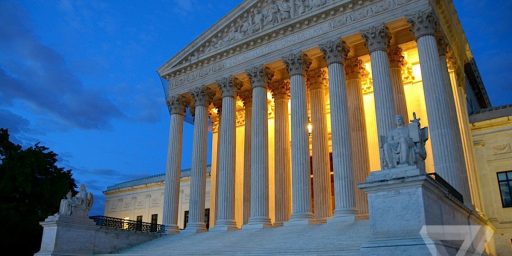
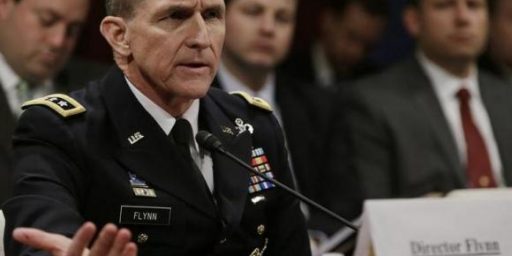
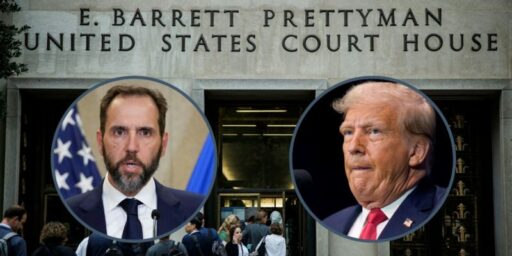
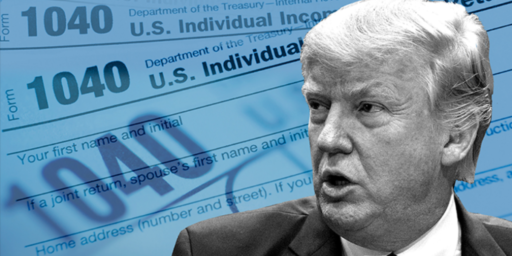
This is a perfect opportunity to sue Adolph not for money, but for an admission and an apology.
It would hurt his ego, and thus him, more than if he were forced, somehow, to turn in every last penny, property, possession, and security he owns.
In general, this poses a lot of problems, as you say. But I think this case is a slam dunk. The rally was specifically and solely about his reelection. His comments were specifically and solely about his reelection.
Yet, in law, the finances of the Presidency and those of the reelection campaign are separate, clearly implying there is a difference.
I agree AND I also think, from a legal perspective, that using the Jan 6 committee as evidence creates a lot of problems.
[Donning flame retardent garb]
In the recent Colorado hearings about whether or not Trump is able to run under the 14th Amendment, Ken Buck advanced the concept that because the January 6th convening was political and excluded willing Republican participation, then it cannot be used as evidence. More details:
https://coloradonewsline.com/2023/11/02/colorado-buck-jan-6-trump-trial/
While there was no Republican participation because they refused to participate, I think that–from a Federal Legal perspective–this particular dog could hunt and could easily short circuit things. Part of this is because the Congressional Committee’s findings are not a finding of fact from a legal perspective. Or that is my understanding at least (someone put up the @HarvardLaw signal).
That doesn’t mean that attorneys couldn’t use the path laid out by the committee, but they’d still need to prove it in court, and that’s never a guarantee.
Completely agree with this. *Checks flame proof suit*
This has been brought up by many free speech advocates and attorneys (i.e Popehat), as to why most of what Trump has said (especially as President) falls into the category of protected speech. Hence why you cannot charge him with criminal insitement.
[Unzips suit]
That said, civil court has much lower evidentiary standards than criminal court. So it’s possible that all bets are off on this, barring a Supreme Court ruling against it.
The more interesting question to me is whether or not the Justice Department may feel like it needs to intervene or take up the case here. My suspicion is, barring a Jan 6 related Trump conviction, they will in order to protect Presidential power.
@mattbernius: You know “excluded” has a particular meaning – it means they weren’t allowed to participate. This is false. They decided to not participate. But wait, I recall that at least one Republican Member did participate.
So, they got nothin. That’s a garbage argument.
@mattbernius:
For my take, and IANAL (and additionally NMTAFCC), I don’t think one has to parse which actions might be both to identify any that are clearly either neither or campaign-related only. For my money, raising
a pseudo armygroup of tourists (eh hem) to occupy the Capitol in order tointimidatelodge a protest to the House of Representatives about the validity of the election with scant evidence beyond the claims of the purported loser seems like it comes under the “neither” category to me, but I wouldn’t cross the street to argue if someone wanted to call it a post-campaign election activity.Presidential duty? Meh…
ETA: I also won’t cross the street to argue that Trump incited a riot, even though that’s what I suspect he may have been hoping for. Still, in a situation run as this cracker would be inclined to have run it, not a single “tourist” who breached the police line would have been alive to stand trial. Just sayin’…
@Jay L Gischer:
Two. Kinzinger and Cheney.
@Just nutha ignint cracker:
Well, aside from the fact that Cracker wouldn’t have incited or called for a riot, um excuse me, tour group (much less stand outside of church clutching an upside down Bible) etc., these are reasons why society is better served with neither one of us are in charge, isn’t it?
You all do know how legal precedent was set don’t you? By pushing the limits of the law.
I am not saying that fact by itself makes it viable, only that all your arguments based on legal precedent are built on shifting ground.
james: “All first-term Presidents are simultaneously President and campaigning for re-election. Distinguishing between those acts is a mug’s game, as arguably every Presidential act is made with an eye on public opinion.”
I disagree strongly. The whole point of the judges’ statements are that seeking re-election is a *political* and *personal* act, not an official act.